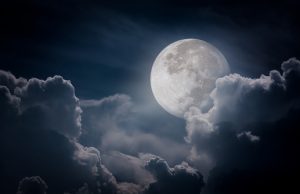 Ah, sleep, one of the simplest pleasures in life, yet sometimes so difficult to do… Looking at cats or babies, you’d think that all it takes is to lie down and close your eyes, but then the night comes and you’re anything but sleepy, and the night drags on and on. This scenario will resonate with practically every adult, but for some people, this is a day-to-day reality and a serious cause for concern.
Ah, sleep, one of the simplest pleasures in life, yet sometimes so difficult to do… Looking at cats or babies, you’d think that all it takes is to lie down and close your eyes, but then the night comes and you’re anything but sleepy, and the night drags on and on. This scenario will resonate with practically every adult, but for some people, this is a day-to-day reality and a serious cause for concern.
Sleeping troubles are easy to chalk off, but ignoring the problem doesn’t fix it—it makes it worse. Given that sleep insufficiency contributes to weight gain, depression, and even decreased brain volume (among many other adverse side effects) if you’re not looking forward to bedtime night in and night out, it’s time to get that shut-eye under control. And it’s not just about clocking in the seven-to-eight hours of sleep quota, it’s also about the quality of those seven to eight hours.
The snooze button? Forget it.
Advertisement
Yes, we are all guilty of hitting that snooze button again and again once the alarm goes off. After all, those extra 15 minutes of sleep in the morning are the sweetest 15 minutes ever… or so we think. In reality, having a second serving of sleep can invalidate the effectiveness of the eight hours of sleep you’ve just had. Going back to sleep after your alarm goes on starts you on a new sleep cycle, leading to grogginess once you wake up, also known as sleep inertia. As a result, you feel like you slept for way less that you actually did, and your reaction and recall lag, So, what do you do? Make an effort to get up with the alarm and forget about the snooze button. If you’re feeling too tired to get up, set a stricter sleeping schedule and make sure there’s enough of natural light in your bedroom so that your body wakes up gradually with the sun.
Get more sunshine
The amount of daylight you’re exposed to has an impact on the quality of our sleep. A study found office workers seated farther away from the windows had disturbed circadian rhythms because they received fewer dark/light cues. And, compared to their coworkers seated closer to the window, they received 46 minutes less of sleep at night. Even if you’re not that lucky person sitting at a desk with a view, make sure to go for morning or afternoon walks to get outside and into the sunshine.
Invest in a moon calendar
Ever wonder why you need those moon phases marked on a calendar? Here’s the answer. The moon has an influence on a lot of things going on the planet Earth, including the sleep of its inhabitants. In particular, our circadian rhythms are much attuned to the full moon. A study published in Current Biology reports that participants who slept in a completely dark room got on average 20 minutes less of sleep on the days preceding or following a full moon. Their sleep hormone levels were lower, along with their brain activity associated with deep sleep. You can’t really change moon phases, but you can improve your sleep by keeping an eye on those moon phases. If you have an important event coming up around the time of a full moon, make sure you go to bed earlier than usual to get a bit more sleep and be ready for the day ahead.
Related: 10 tricks to improve your sleep
